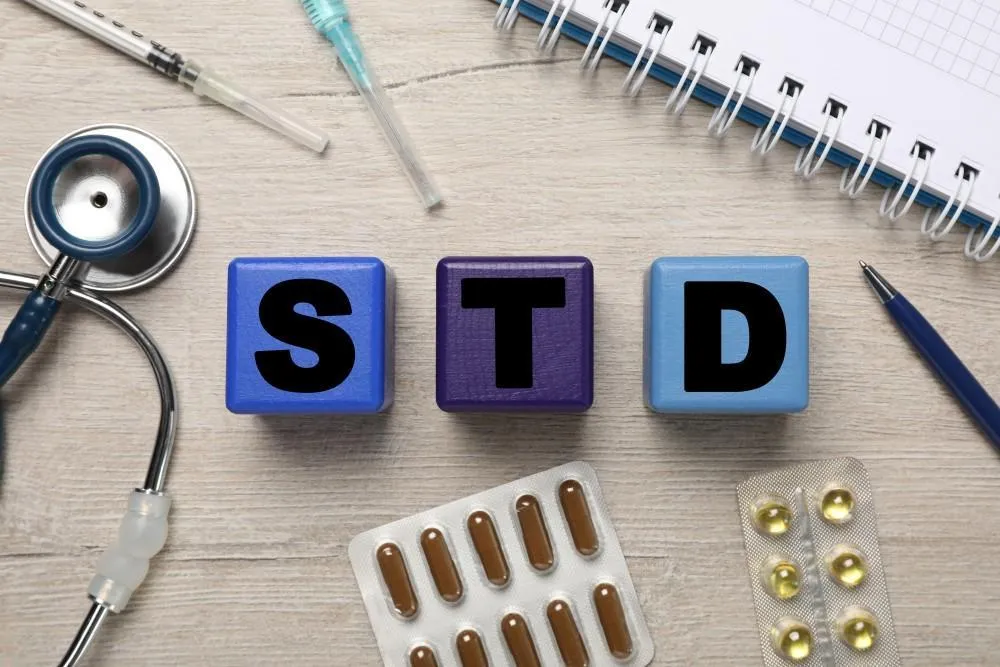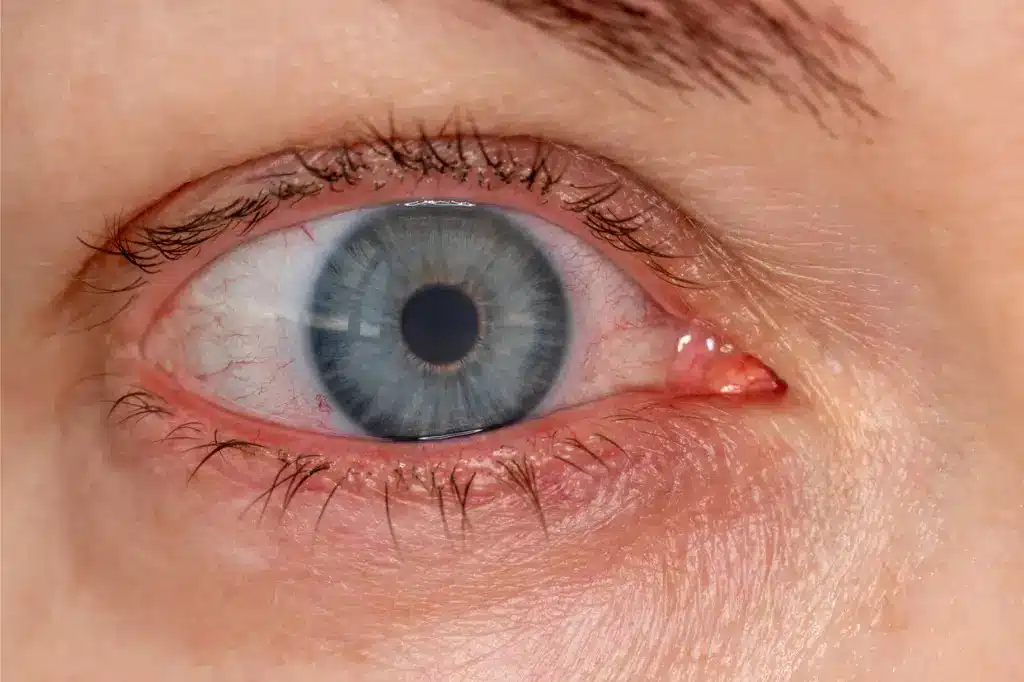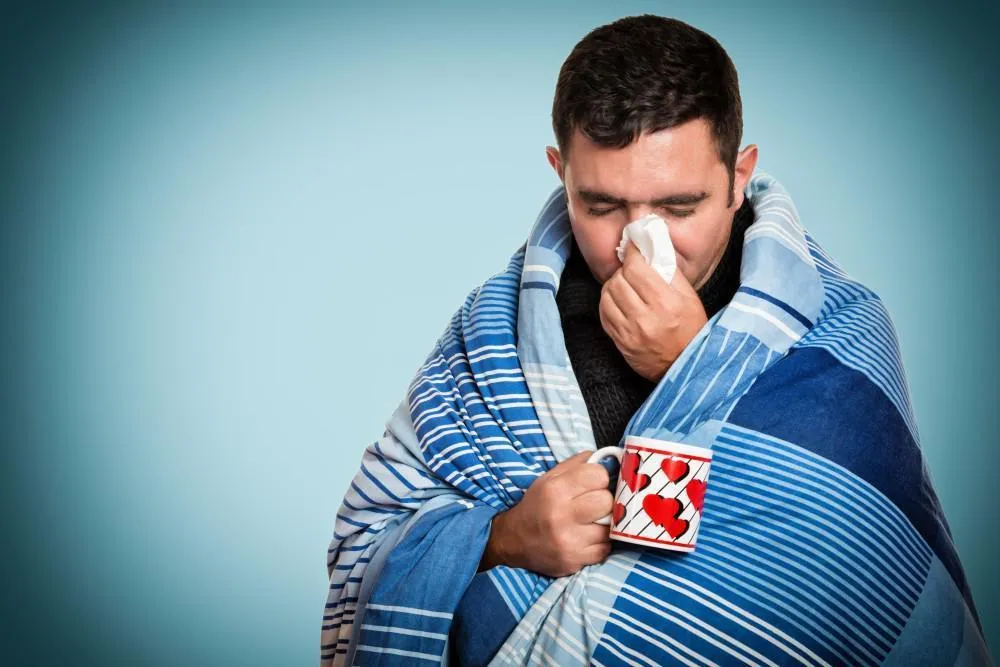Sore Throat vs Strep Symptoms: How To Tell The Difference

Soreness and throat infection are two entirely different maladies with different pathogens and remedies. It is important to tell the difference between sore and strep throat symptoms to treat them well and avoid complications. On the one hand, pharyngitis can be seen in many conditions like allergies or viral infections as common symptoms. However, it is a bacterial infection that demands immediate medical attention. When misidentified, strep infection can make it difficult for patients to get the right treatment using antibiotics, exposing them to serious complications, including rheumatic fever or kidney damage. Making the right distinction between normal throat vs sore throat will help patients receive the appropriate care, reducing the spread of infection and promoting faster recovery.
Pharyngitis is a common symptom of various upper respiratory infections, including the common cold and flu. As the Centers for Disease Control and Prevention (CDC) reports, sore throats affect millions of people annually and are a leading reason for doctor visits, particularly in the colder months. Urgent care for strep throat will help you prevent complications.
Strep infection is very common in children under 15, accounting for 20-30% of sore throat cases in this age group. Adults experience strep infection less frequently, with only 5-15% of pharyngitis in adults being due to strep.
What is a Sore Throat? Common Causes and Symptoms
What does a sore throat look like? It is a symptom that may occur for various reasons, beginning with temporary and non-life-threatening ones and ending with more serious cases. Let us now discuss in detail the most ubiquitous causes of sore throat.
Viral infections
Acute respiratory viral infections (ARVI): The common cold or flu can cause other symptoms such as runny nose, cough, fever.
Mononucleosis: Known as “kissing disease,” it often affects teenagers and young adults, causing severe sore throat symptoms, fever, swollen lymph nodes and fatigue.
Bacterial infections
Tonsillitis: An infection of the tonsils, most commonly caused by streptococci, causes them to become inflamed, red, swollen, and plaque-like. It is accompanied by a severe sore throat.
Pharyngitis: Bacterial inflammation of the back of the throat can also cause swallowing pain, general malaise, and fever.
Allergies
Reactions to plant pollen, mold, dust and animal hair can cause irritation, itching, sneezing and sore throat symptoms.
Dry air
When indoor air becomes dry in winter, the mucous membrane of the throat can dry out, causing pain and irritation.
Air pollution and chemical irritants
Chemical fumes, cigarette smoke, and polluted air can irritate the pharynx and cause pain and discomfort. This will be a sore throat with no other symptoms.
Mechanical irritation
Talking, shouting, or singing loudly can cause a scratchy sensation.
Gastroesophageal reflux (GERD)
This is a condition whereby the stomach contents rise into the esophagus and pharynx, resulting in irritation, chronic coughing.
Tumors
Although a less common cause, tumors of the throat or vocal cords can also cause persistent symptoms and voice changes.
Understanding the difference between sore throat and strep throat is important for a health provider to prescribe treatment. If this disease persists or recurs, it is advisable to seek medical advice to rule out serious conditions and start timely treatment.
In addition, there may be other symptoms – fever, feverishness, headache, hoarseness of voice, etc. The pain itself may be severe or severe. The pain may be strong or weak and intensify when talking, coughing, or swallowing. It is more like tingling or scratching in the gullet in mild cases than painful sensations. You should consult a doctor if the patient has at least part of the above symptoms. Timely help for sore throat will stop further disease development and prevent complications.
What is Strep Throat? Key Symptoms and Causes
What does strep throat look like? It is a bacterial infection caused by Group A Streptococcus (GAS) bacteria. First of all, it attacks the throat and tonsils, which leads to inflammation and pain. Unlike a typical disease caused by viruses or other irritants, strep throat results from bacterial infection and requires antibiotic treatment to prevent complications.
Key strep throat symptoms are:
- Severe pain.
- Red and swollen tonsils.
- Tiny red spots.
- Swollen lymph nodes.
- Fever.
- Headache and body aches.
- Absence of cough.
Does strep throat cause coughing? Infection can be airborne, so if you are standing near someone who is coughing and touching different surfaces, there is a high chance of infection.
Early diagnosis and treatment of bacterial pharyngitis are crucial to prevent complications such as rheumatic fever, which can damage the heart, or kidney inflammation known as post-streptococcal glomerulonephritis.
The Main Differences Between Sore Throat and Strep Throat
While both streptococcal and painful throats might cause uneasiness, they are distinct conditions. Viral infection means sore throat, whereas a specific bacterium called Streptococcus leads to strep infection.
Strep throat symptoms, such as a high fever, swollen lymph nodes, and difficulty swallowing, are very common. In contrast, it may be less severe and accompanied by other cold or flu symptoms.
If you experience pharyngitis accompanied by these more severe symptoms.
Symptoms Comparison: Sore Throat vs. Strep Throat
When exploring the uncomfortable sensations of a sore throat and comparing them with strep throat symptoms, it’s essential to recognize some key distinctions that can help identify what one might be experiencing. Pharyngitis, often a precursor to or a symptom of a common cold, manifests as a scratchy, painful sensation in the throat that can occur with or without swallowing and is typically accompanied by general cold symptoms such as a runny nose, cough, and mild fever. These symptoms are largely due to viral infections and tend to improve on their own within a week or so.
Bacterial pharyngitis has more severe and specific symptoms. People with strep throat symptoms often experience a sudden onset of intense soreness, swallowing pain, and high fever.
Moreover, bacterial pharyngitis can also cause white areas or lines of pus on the tonsils, enlarged lymph nodes in the neck, and occasionally a skin rash. Although most sore throat symptoms are similar to those for common colds, strep infection symptomatology mandates medical intervention and antibiotic administration to avoid complications and hasten healing.
How to Diagnose: When is it Just a Sore Throat?
How do you rule out strep throat? While a sore throat is a common ailment, it’s important to distinguish it from strep infection, a bacterial infection that requires medical attention. These are a couple of basic indicators that will help you identify when your pharyngitis might be something more:
- Severity of symptoms: If your cough is accompanied by a high fever, swollen lymph nodes, difficulty swallowing, or white spots in the mouth, it could be a sign of strep bacteria.
- Duration: A sore throat that persists for several days or worsens over time.
- Other symptoms: If you experience additional sore throat symptoms like body aches, fatigue, or a headache, it’s more likely to be a bacterial infection.
A healthcare provider may recommend rapid strep test services or a throat culture to diagnose strep throat. The rapid strep test involves swabbing and can provide results within minutes, while a throat culture, though more accurate, may take a couple of days for results. These tests help confirm whether Group A Streptococcus bacterium, the culprit behind strep infection, causes the disease. If the tests return negative, the sore throat is likely viral, and antibiotics are unnecessary. However, if they are positive, appropriate antibiotic treatment will be prescribed.
Treatment Options for Sore Throat
Normal throat vs sore throat: what’s the difference? A sore throat is only a symptom, so it is important not to mask it with painkillers but to eliminate the root cause.
The doctor might prescribe
- antibiotics
- antiviral drugs
- antifungal
- antipyretics
- anti-inflammatory
- mouthwash products
- sprays and lozenges with analgesic effect
- physiotherapeutic procedures, such as tonsil lavage or ultrasound therapy.
It is important to keep in mind that antibiotics and other general medications are prescribed only if the infection is confirmed, and you have sore throat symptoms. This may require tests or other examinations.
Treatment Options for Strep Throat
Bacterial pharyngitis treatment mainly consists of antibiotics to get rid of Group A Streptococcus bacterium, the cause of the infection. Other than antibiotics, supportive management is vital in decreasing strep throat symptoms and promoting healing. These include getting enough sleep, drinking fluids and using OTC analgesics to decrease fever and alleviate throat pain. Also, gargling with warm salt water, taking soothing teas, and using lozenges can relieve symptoms. Moreover, neglect to know that 7 heart-healthy habits could make you healthy heart-wise.
Nevertheless, even if symptoms improve before the end of medication, you should finish taking the complete course of antibiotics. This is because it helps ensure the elimination of the bacteria and decreases the possibility of complications and the risk of antibiotic resistance developing. However, most people will start feeling better within a few days on antibiotics, but they should stay at home for 24 hours from when they started their treatment to help prevent them from transmitting the infection to others in school or the workplace.
When to See a Doctor: Understanding the Risks of Misdiagnosis
You should understand the difference between sore throat and strep throat and know about urgent care near you. Misdiagnosing strep infection as a simple viral disease can result in serious long-term complications like rheumatic fever, which can affect the heart, or post-streptococcal glomerulonephritis, a kidney disorder. These complications arise because untreated streptococcal pharyngitis can allow the bacteria to persist and cause systemic issues.
See a doctor if symptoms such as severe pain, difficulty swallowing, high fever, or swollen lymph nodes persist beyond 48 hours. Additionally, if you notice other sore throat symptoms such as a rash, difficulty breathing, or recurrent episodes of sore throat, medical consultation is necessary to rule out streptococcal pharyngitis and ensure appropriate treatment. Prompt diagnosis and antibiotic treatment are essential to prevent these complications and ensure a quick recovery.
This is caused by patients’ failure to address symptoms on time. Ignoring the therapy may result in extended illness duration, increased transmission risk rates, and possible development of severe health complications. Consequently, when symptoms point to strep throat, it is critical for people’s own health and public security that they get medical advice. One of the reasons to get an annual physical exam is early detection of potential health problems, updating vaccines and getting personalized recommendations on how to live a healthy life.
Conclusion
Pharyngitis can be uncomfortable, but if followed by severe symptoms, it should be seen as a medical emergency. You should know the difference between a sore throat and strep throat; this will aid in proper diagnosis and treatment. Do not allow yourself to be interrupted from your regular duties by such suffering. In case there are serious signs and symptoms around you, consult with a medical professional who will evaluate you promptly and offer any desired medication management.




















































